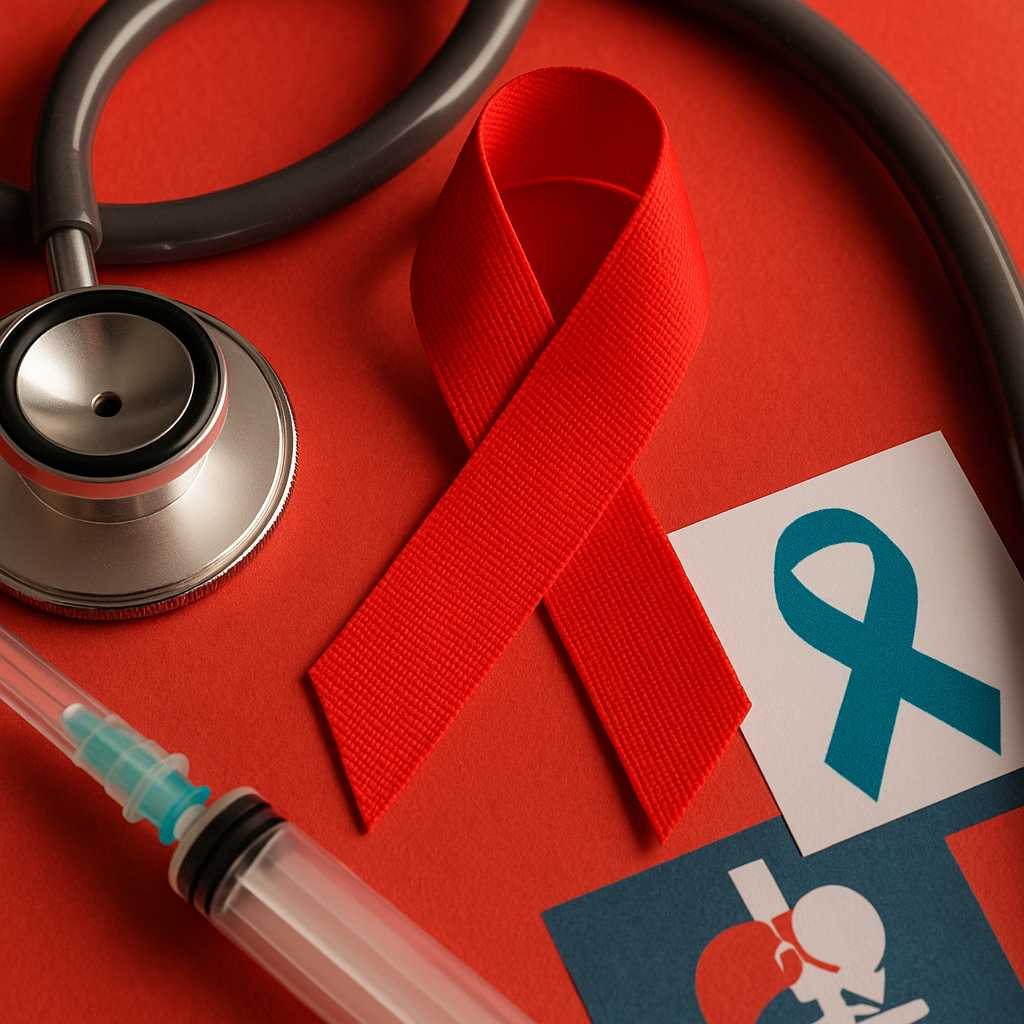Introduction
HIV and cancer—two serious diagnoses that often intersect in complex ways. With advancements in treatment, people with HIV are living longer, healthier lives. But longer lifespans have brought increased cancer risk, making it essential to understand how HIV impacts cancer development, detection, and care. This article explores the key cancer types associated with HIV, how risk factors overlap, and how to protect your health through screening and prevention.
Table of Contents
– How HIV Affects Cancer Risk
– Common Cancers in People Living with HIV
– Screening and Early Detection Strategies
– Treatment Considerations for HIV-Positive Cancer Patients
– FAQ
– Conclusion
How HIV Affects Cancer Risk
HIV weakens the immune system, making it harder for the body to detect and destroy abnormal cells that could turn into cancer. Even with an undetectable viral load, chronic immune activation may contribute to increased cancer susceptibility.
Certain viruses that can cause cancer—like human papillomavirus (HPV), hepatitis B and C, and Epstein-Barr virus—are more common in people with HIV. This increases the chances of developing cancers linked to those infections.
According to the National Cancer Institute, people with HIV are more likely to develop certain cancers than the general population, even when HIV is well-managed. Understanding this risk is crucial for early intervention and prevention.
Common Cancers in People Living with HIV
There are three “AIDS-defining cancers” that historically signaled the progression from HIV to AIDS:
– Kaposi Sarcoma: A rare cancer that forms in the lining of blood vessels and is strongly linked to human herpesvirus 8 (HHV-8).
– Non-Hodgkin Lymphoma: Including primary central nervous system lymphoma, more prevalent in advanced HIV.
– Invasive Cervical Cancer: Caused by persistent HPV infection and more aggressive in HIV-positive individuals.
Beyond these, other non-AIDS-defining cancers are also more frequent:
– Liver Cancer: Often linked to co-infection with hepatitis B or C.
– Anal Cancer: Strongly associated with HPV, particularly among men who have sex with men.
– Lung Cancer: Higher prevalence, partly due to increased smoking rates and chronic inflammation.
– Hodgkin Lymphoma, Head and Neck Cancers: Emerging concerns in aging HIV populations.
Preventive care and consistent monitoring make a significant difference in outcomes. Learn more about co-management at Healthcare.pro.
Screening and Early Detection Strategies
Routine cancer screening is essential for people living with HIV. This includes:
– Pap smears for women and anal Pap tests for at-risk individuals.
– Colonoscopy beginning at age 45 or earlier with family history.
– Liver ultrasound and AFP tests for those with hepatitis co-infection.
– Low-dose CT scans for smokers over age 50 at risk of lung cancer.
These tests help identify cancers early—when they are more treatable. Coordination between infectious disease specialists and oncologists ensures timely follow-up.
Vaccination also plays a role in prevention. The HPV vaccine is safe and effective in people with HIV, and hepatitis B vaccination can reduce liver cancer risk. Regular checkups and honest communication with providers are key to prevention.
Treatment Considerations for HIV-Positive Cancer Patients
Managing HIV and cancer simultaneously requires a coordinated care team. Oncologists and HIV specialists must work together to prevent drug interactions between antiretrovirals and chemotherapy agents.
Cancer treatments—like radiation, chemo, and immunotherapy—can further suppress immunity. This makes close monitoring critical. Providers may adjust ART regimens during cancer care to reduce overlapping toxicities or boost immune strength.
With proper care, many HIV-positive patients respond well to cancer treatment. In fact, survival rates are improving as protocols become more personalized and evidence-based.
Supportive care is equally important. Mental health services, nutritional support, and social services can ease the burden and improve overall outcomes.
For more tools and provider directories, visit www.ehealthcaresolutions.com.
FAQ
Are people with HIV more likely to get cancer?
Yes. Immune suppression and higher rates of co-infections like HPV increase the risk for several cancers.
Can people with HIV receive chemotherapy?
Absolutely. Many HIV-positive patients undergo successful cancer treatment, although care must be closely managed.
Does being undetectable reduce cancer risk?
Yes. Viral suppression reduces inflammation and improves immune function, which lowers—but does not eliminate—cancer risk.
Should HIV patients get vaccinated for HPV?
Yes. HPV vaccines are recommended for people with HIV up to age 45 and are highly effective in preventing HPV-related cancers.
Is cancer screening different for people with HIV?
Some screenings, like anal Pap tests and more frequent cervical checks, are more commonly recommended in HIV-positive populations.
Conclusion
HIV and cancer are deeply connected, but knowledge, prevention, and timely treatment can shift the odds. With routine screening, proper vaccinations, and expert medical care, people with HIV can reduce their cancer risk and improve outcomes if diagnosed. Education and support make a powerful difference in living well—no matter the diagnosis.
This content is not medical advice. For any health issues, always consult a healthcare professional. In an emergency, call 911 or your local emergency services.




